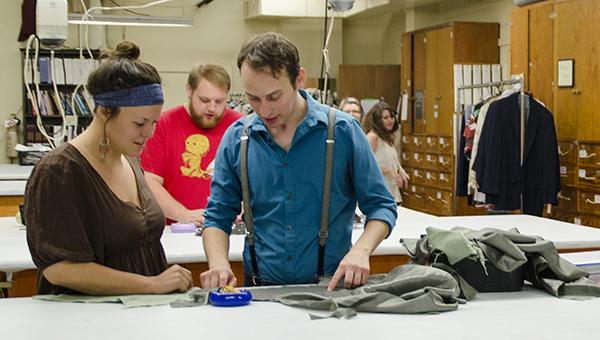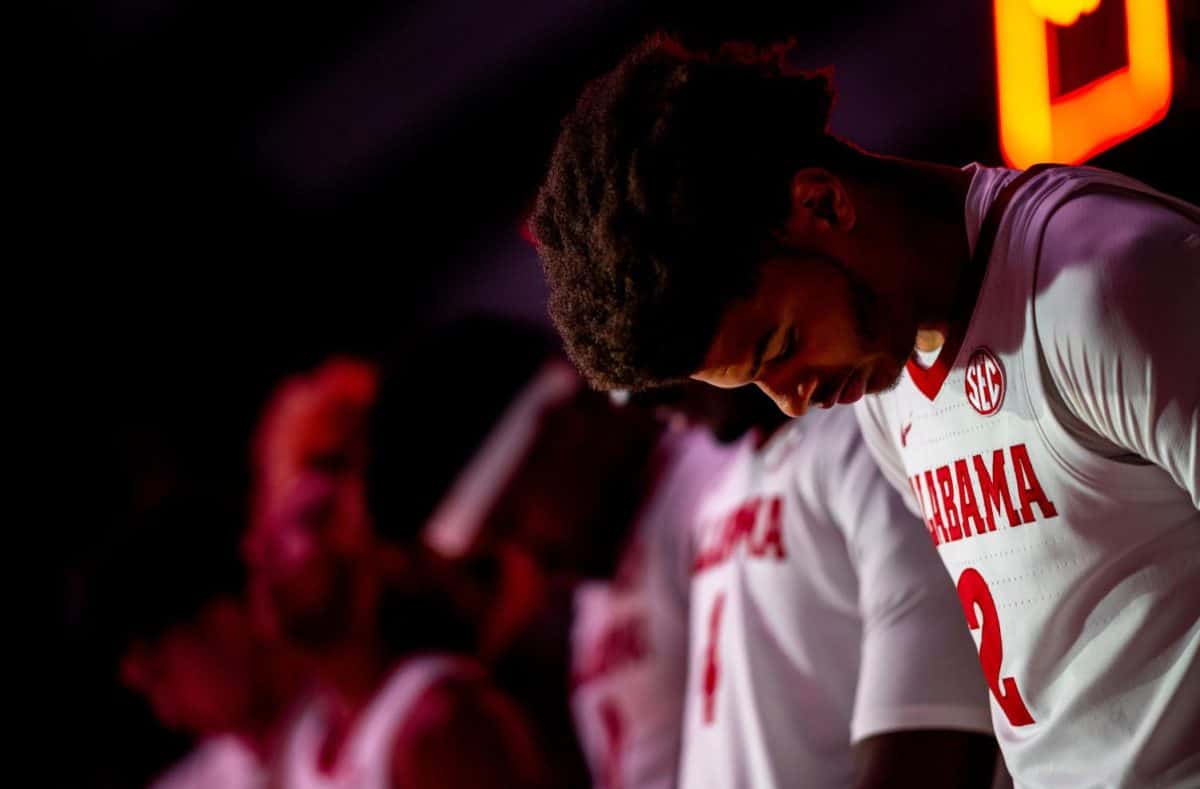Underneath the main stage inside Rowand-Johnson Hall, the designers and technicians of The University of Alabama’s dance and theatre department’s costume shop work through every step of a costume’s life.
The shop is staffed by students at a variety of skill levels, from undergraduates in other theatre disciplines to MFA candidates in costume design.
Daniel Whitlow, a graduate student studying costume design and production, began his career in costumes as an undergraduate.
“I walked into the shop and said, ‘This looks fun’ and never left,” Whitlow said.
Whitlow works primarily to build costumes, but students fill every role in the process, from concept design to fittings to laundry after rehearsals.
Kelly Kohlman, a junior majoring in musical theater and business management, works in the shop as part of a practicum requirement for her theatre degree. Although Kohlman wants to go into performance, she said her time in the costume shop has allowed her to see how much goes on behind the scenes of the production process.
“They use it as a way to educate everyone about all the facets of theatre production so we’re not just doing one thing,” Kohlman said.
Practicum students are assigned to tasks like laundry or distressing new costumes for effect.
“[The costume makers] don’t get seen by the public, but they do so much work, and they put in so much time in what they do,” Kohlman said.
Ideally, students like Whitlow have about four to six weeks to build new pieces from approved sketches. They first make patterns, then construct the costume and finally fit it to the actor, actress or dancer who will be performing in it.
The costume shop works on a different schedule than the actors.
“We might open on a Tuesday, but have dress rehearsal the Thursday before,” said Donna Meester, the director of costume design and production. “We have to get things done before they open.”
Although designers and technicians make the many costumes for each show, the theatre and tance department has a stock of old costumes to start work from.
“We have great costume storage,” Meester said. “We always go through our stock first to see what we have.”
Whitlow said because the program at the University is so large, he has wondered if he was going to get the full experience of working in every step of the process.
“Being part of the process is very important to me,” he said. “Sometimes you can be a minion in the army, and you’re not really part of the process.”
He said the shop works together as a team, and the program is designed to facilitate learning this way.
“There’s only so much sitting around and talking theory you can do,” Whitlow said.
While Whitlow and other graduate students’ coursework is separate from their work in the shop, both experiences contribute to their education. For example, some students are making hats in the shop while they’re studying millinery in the classroom.
Regardless of the specifics of the assignments, Whitlow said he and other students are passionate about their work.
“Every show is a new thing, and that’s why I like it,” he said. “It doesn’t get stale. There aren’t many days I wake up and don’t want to come into work.”







